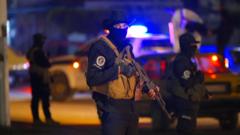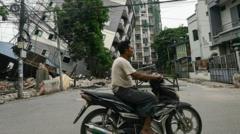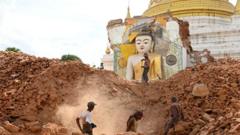The arrest of Ataullah, leader of the Arakan Rohingya Salvation Army, raises concerns over ongoing violence and instability among Rohingya refugees in Bangladesh, where over a million individuals remain in dire living conditions following a history of ethnic cleansing in Myanmar.
Rohingya Armed Group Leader Arrested in Bangladesh Amid Ongoing Ethnic Tensions

Rohingya Armed Group Leader Arrested in Bangladesh Amid Ongoing Ethnic Tensions
The arrest of ARSA leader Ataullah prompts renewed scrutiny on the Rohingya crisis, highlighting the continued plight of displaced communities in Bangladesh.
The leader of the Arakan Rohingya Salvation Army (ARSA), an armed group formed by the Rohingya minority of Myanmar, was apprehended during police operations in Bangladesh this week. Ataullah, detained in Narayanganj District, is now facing charges under stringent antiterrorism laws. Along with Ataullah, nine other alleged members of ARSA were also captured during the same raids.
This development comes in the context of a lingering humanitarian crisis, as coordinated assaults by ARSA insurgents in 2016 and 2017 precipitated a brutal response from Myanmar's military, resulting in widespread atrocities against the Rohingya. The military’s actions, described as "security operations," have been condemned internationally, with the U.S. government officially categorizing the Rohingya expulsion as genocide.
As a result of this violent history, over a million Rohingya refugees currently inhabit makeshift tent settlements in Bangladesh, including what has been termed the world’s largest refugee camp. The conditions in these camps have been exacerbated by ongoing conflicts between various militant factions, further traumatizing a community that has already suffered immensely and threatening to radicalize a new generation amid desperation and uncertainty.






















